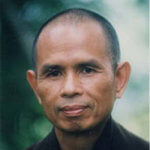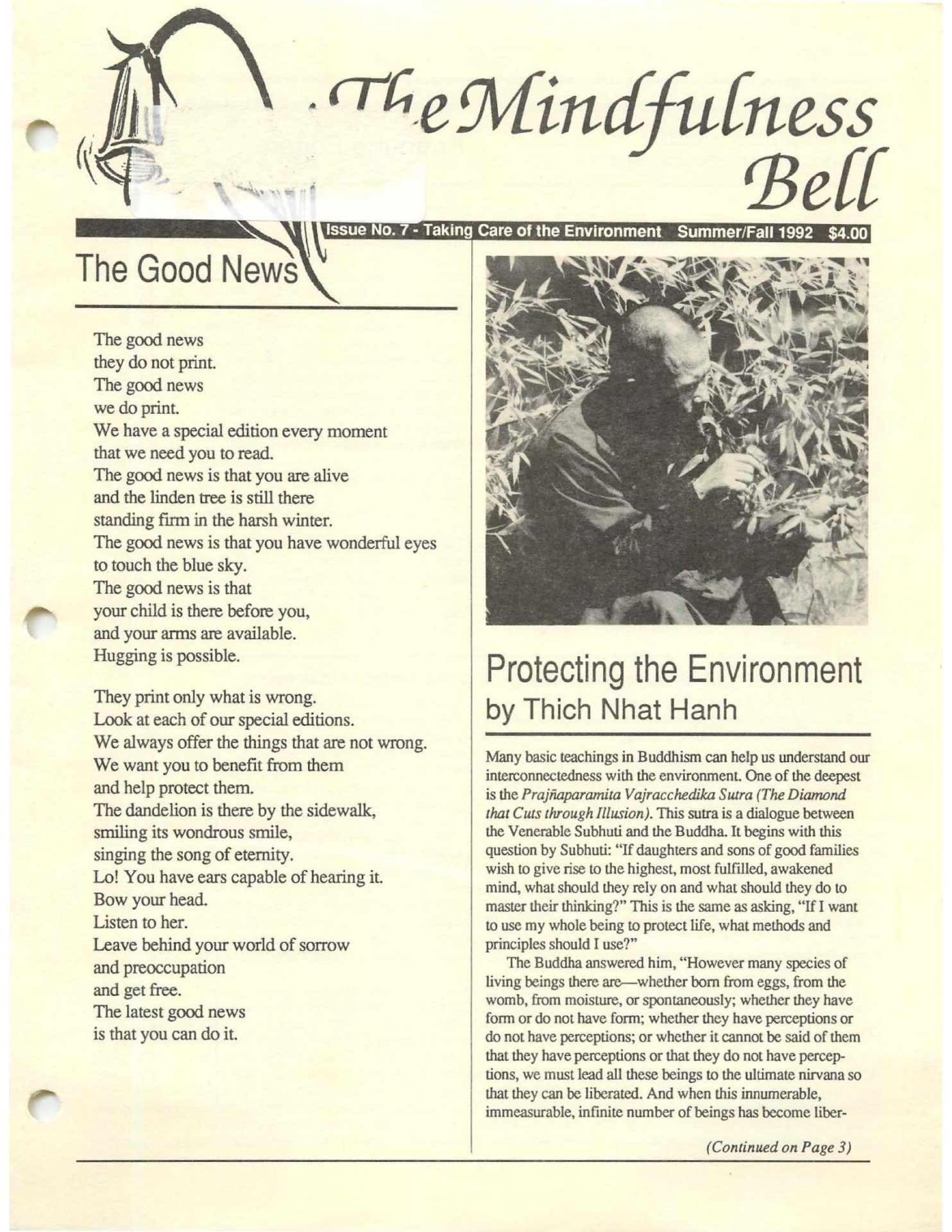By Thich Nhat Hanh in August 1992
In Order That We May Live Long and Happily Together, In Order That We May Continually Develop and Deepen Our Love and Understanding, We the Undersigned, Vow to Observe and Practice the following:
I, the one who is angry, agree to:
1. Refrain from saying or doing anything that might cause further damage or escalate the anger.
By Thich Nhat Hanh in August 1992
In Order That We May Live Long and Happily Together, In Order That We May Continually Develop and Deepen Our Love and Understanding, We the Undersigned, Vow to Observe and Practice the following:
I, the one who is angry, agree to:
1. Refrain from saying or doing anything that might cause further damage or escalate the anger.
2. Not suppress my anger.
3. Practice breathing and taking refuge in the island of myself.
4. Calmly, within 24 hours, tell the one who has made me angry about my anger and suffering, either verbally or by delivering a Peace Note.
5. Ask for an appointment for later in the week (e.g. Friday evening), either verbally or by note, to discuss this matter more thoroughly.
6. Not say: “I am not angry. It's okay. I am not suffering. There is nothing to be angry about, at least not enough to make me angry.”
7. Practice breathing and looking deeply into my daily life-while sitting, lying down, standing, walking, and driving-in order to see:
a. the ways I myself have been unskillful at times
b. how I have hurt the other person because of my own habit energy.
c. how the strong seed of anger in me is the primary cause of my anger.
d. how the other person's suffering, which waters the seed of my anger, is the secondary cause.
e. how the other person is only seeking relief from his/her own suffering.
f. that as long as the other person suffers, I cannot be truly happy.
8. Apologize immediately, without waiting until Friday evening, as soon as I realize my unskillfulness and lack of mindfulness.
9. Postpone the Friday meeting if I do not feel calm enough to meet with the other person.
I, the one who has made the other angry, agree to:
1. Respect the other person's feelings, not ridicule him or her, and allow enough time for him or her to calm down.
2. Not press for an immediate discussion.
3. Confirm the other person's request for a meeting, either verbally or by note, and assure him or her that I will be there.
4. If I can apologize, do so right away, and not wait until Friday evening.
5. Practice breathing and taking refuge in the island of myself to see how:
a. I have seeds of unkindness and anger as well as the habit energy to make the other person unhappy.
b. I have mistakenly thought that making the other person suffer would relieve my own suffering.
c. by making him or her suffer, I make myself suffer.
6. Apologize as soon as I realize my unskillfulness and lack of mindfulness, without making any attempt to justify myself and without waiting until the Friday meeting
We Vow with Lord Buddha as Witness and the Mindful Presence of the Sangha, to Abide by these Articles and to Practice Wholeheartedly. We Invoke the Three Gems for Protection and to Grant us Clarity and Confidence.
Signed, the ______ Day of __________________________ in the Year ________.
__________________________ __________________________


